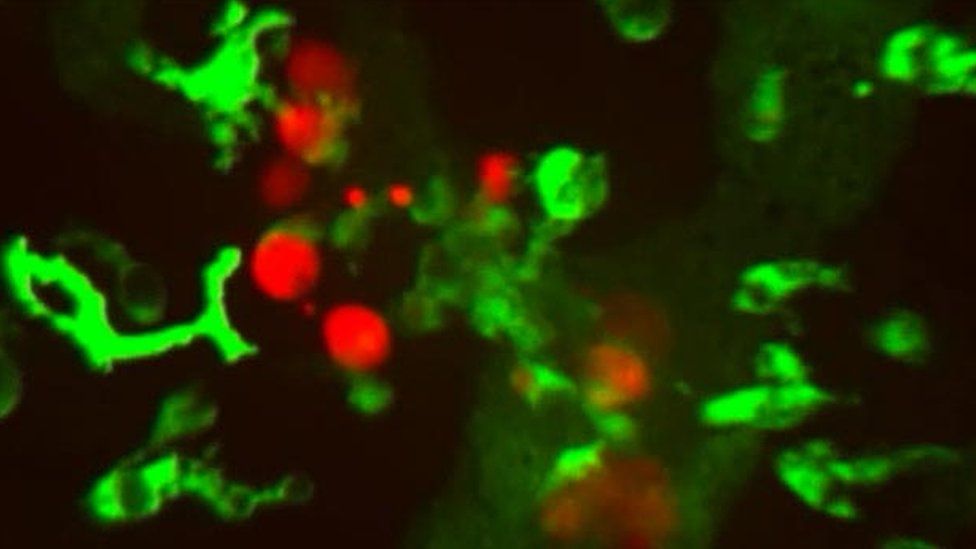Zebrafish aid Edinburgh cancer discovery
- Published

Edinburgh scientists have used tropical fish to uncover important evidence about how the immune system interacts with brain tumours.
The Cancer Research UK team examined the brains of transparent zebrafish with a fluorescent microscope.
They observed that specialised immune cells in the brain seemed to encourage brain tumour cells to grow, rather than destroy them.
The research was carried out at the University of Edinburgh.
Dr Dirk Sieger, who led the study, said his team recorded the microglia immune cells interacting with cells from a type of brain tumour called glioblastoma.
Glioblastoma is the most common type of brain tumour and also the most difficult type to treat. About 265 people are diagnosed with it every year in Scotland.
Microglia usually "eat" anything that could cause harm to the brain, but the zebrafish footage shows them interacting with the cancer cells, helping them to grow and spread.
Dr Sieger said: "Looking at the interactions between microglia and glioblastoma cells, the microglia appear to be friendly towards the tumour."
"We call this 'nursing' because these immune cells really help and support the cancer cells develop."
However, the scientists also observed that the microglia in zebrafish brains react very differently when they came into contact with a other types of cancer cell.
The team looked at how these immune cells interacted with fibrosarcoma cells in zebrafish brains and found the microglia did start to engulf and break down these cancer cells.
The scientists hope their discovery can be used as a new way to test experimental drugs as a treatment for brain tumours.
Dr Sieger added: "If we can make a drug that can convert microglia's alliance, then we should be able to see these immune cells attacking tumour cells."
Dr Aine McCarthy, senior science information officer at Cancer Research UK, said: "Glioblastoma is one of the most aggressive forms of brain tumour that is very difficult to treat. Survival rates are stubbornly low so more research is needed to find new treatments for the disease.
"This research provides some exciting new insights into how immune cells in the brain interact with glioblastoma cells. The findings could help scientists design and develop new drugs to help the immune system turn its full force on brain tumours."